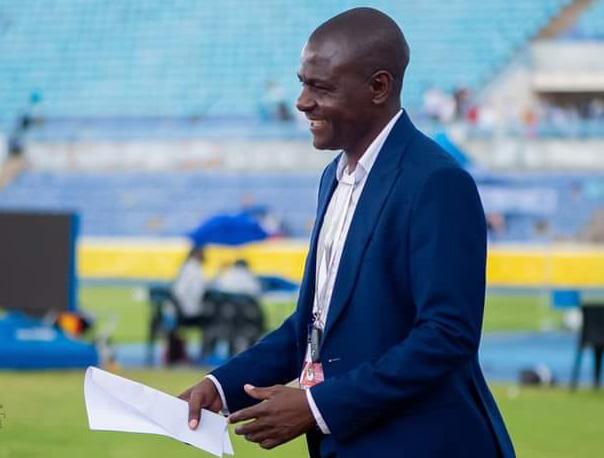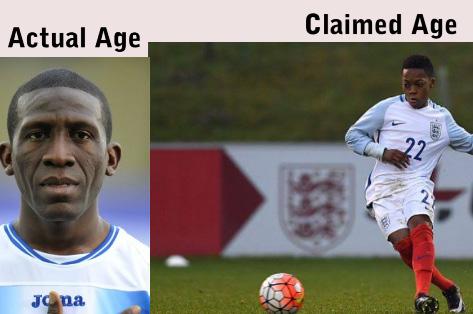
3 minute read
‘GABORONE MEET’ MEETS EXPECTATIONS
The Gaborone International Meet is the only international track and field competition hosted in Botswana. This year people weredetermined to attend with the kids especially as it would be last chance to see national treasure Isaac ‘Badman’ Makwala running locally.
The man eventually took the microphone to announce his retirement plans pointing out that he is not all lost to sport but will be participating mostly abroad as he nears
Advertisement
to put down his tools. STATEMENT ON LETSILE TEBOGO’S WORLD U20 RECORD.
This serves to inform your esteemed selves that the World Athletics has taken a decision not to Ratify Letsile Tebogo’s time of 9.96 as a World Under-20 Record, set in the men’s 100m on the 30th of April 2022, during the Gaborone International Meet Continental Bronze Tour. BAA ascertains that despite the outcome of the World Record, the time remains valid as a National Record, Area U20 Record and a qualifier for the Oregon 22 World Championships. The decision resulted from lack of conducting a zero- gun test during the test of the timing equipment, which is required to confirm the accuracy of timing equipment prior to a race. Nonetheless, the zero test was conducted post the event which World Athletics acknowledged and appraised. Due to submission post the event, World Athletics could not consider the application.
The Botswana Athletics Association bears full responsibility of the outcome.

First in history for Botswana! Letsile Tebogo has become the first athlete to run a sub 10s for his country, racing to a National Record of 9.96s (+1.9) to win the men’s 100m at the Gaborone International Meet. Tebogo is now 3rd fastest in the world this year and has now qualified for the World Championships in Oregon.
Appreciation Post
GLODY DUBE.
HE USED TO MAKE PEOPLE COME TO THE STADIUM TO WATCH HIM RUN, NOW HE MAKES PEOPLE COME TO THE STADIUM TO SEE INTERNATIONAL ATHLETES COMPETE AT THE GABORONE INTERNATIONAL MEET. GIM IS A WORLD CLASS ATHLETICS’ MEET THAT TAKES PLACE IN GABORONE, BOTSWANA. IT WAS RECENTLY AWARDED A BRONZE STATUS BY THE WORLD ATHLETICS MAKING IT THE FIRST OF IT’S KIND IN BOTSWANA AND SOUTHERN AFRICA. IT ATTRACTS ATHLETES FROM ALL OVER THE WORLD AND STANDS A VERY GOOD CHANCE OF BEING PROMOTED TO A SILVER STATUS OR BETTER. THE GIM MASTERMIND
In the recent months age fraud has manifested itself in CAF’s junior tournaments. In August, three Kenyan players were disqualified from the CECAFA U17 tournament in Tanzania after they failed MRI tests.
The other time Benin’s U17 team was disqualified from the WAFU-B U17 after half of their players failed the test. Niger, Burkina Faso, Togo, Nigeria and Cote d’Ivoire had one player each sent home.
The mandatory use of Magnetic resonance imaging (MRI) was introduced by FIFA in 2009 for the FIFA Under-17 World Cup to help ascertain whether players are over age or not. MRI is considered to be 99% accurate until the age of 17, after which it becomes harder for medical professionals to calculate a person’s age. But what prompts age cheating?
In some cases it’s never really the fault of the player. Dr Yacine Zerguini is the vice president of the CAF Medical Committee, and also a member of the FIFA Medical Committee. He says that in the case of Under-17 age cheats:
“We know that it is not generally bad intention or purpose if players are biologically above 17 years. In some countries, birth certificates are
But age cheating is killing African football. Egyptian Football Association media officer Medhat

inaccurate or even not available, without that being the fault of the player or the association.” But things get different when federations are asked to do independent MRI scans for age tests, before CAF conducts its tests before a tournament and still, overage players get busted. Several high-placed officials within the various associations and the ministries have acknowledged that they have at times deliberately created ‘football ages’, so that older players are still eligible for the U-20 and U-17 teams.
Football administrators believe age cheating took a leap after the commercialisation of the game in Africa. Clubs and footballers’ agents have been accused of encouraging players alter their age so that it becomes less hard to obtain contracts with European clubs looking out for young talents.
But age cheating is killing African football. Egyptian Football Association media officer Medhat Shalaby likens age fraud to a cancer in African football. He argues that age fraud is a counterproductive practice, to which he is right. Age cheating is destroying football development in Africa. It makes tournaments useless because some players must not be playing because they are too old. What is the point of a 17-year-old competing in a tournament where the opposing team has players way over that age group?
The more this practice continues, the more we gradually lose credence. Our football stars become subject to unfair scrutiny and taunts. This reputation disturbs the success of our players abroad.
It still is fresh to recall the age saga that broiled across Europe concerning African stars like Nwankwo Kanu, Obafemi Martins, Julius Aghahowa and not forgetting the scandal involving Samuel Eto’o and the then coach at Chelsea, Jose Mourinho who claimed that the Cameroonian is older than what he says he is. Ultimately, Africa needs to start playing clean! Those are sentiments shared by Namibian women football team coach Jacqueline Shipanga. Our national football associations need not support such. Therefore it’s a general call to all the federations around the continent to fix their houses and make things better. Until then, this menace will live on and African teams will remain less productive and too mediocre to challenge other countries in the World Cup.











